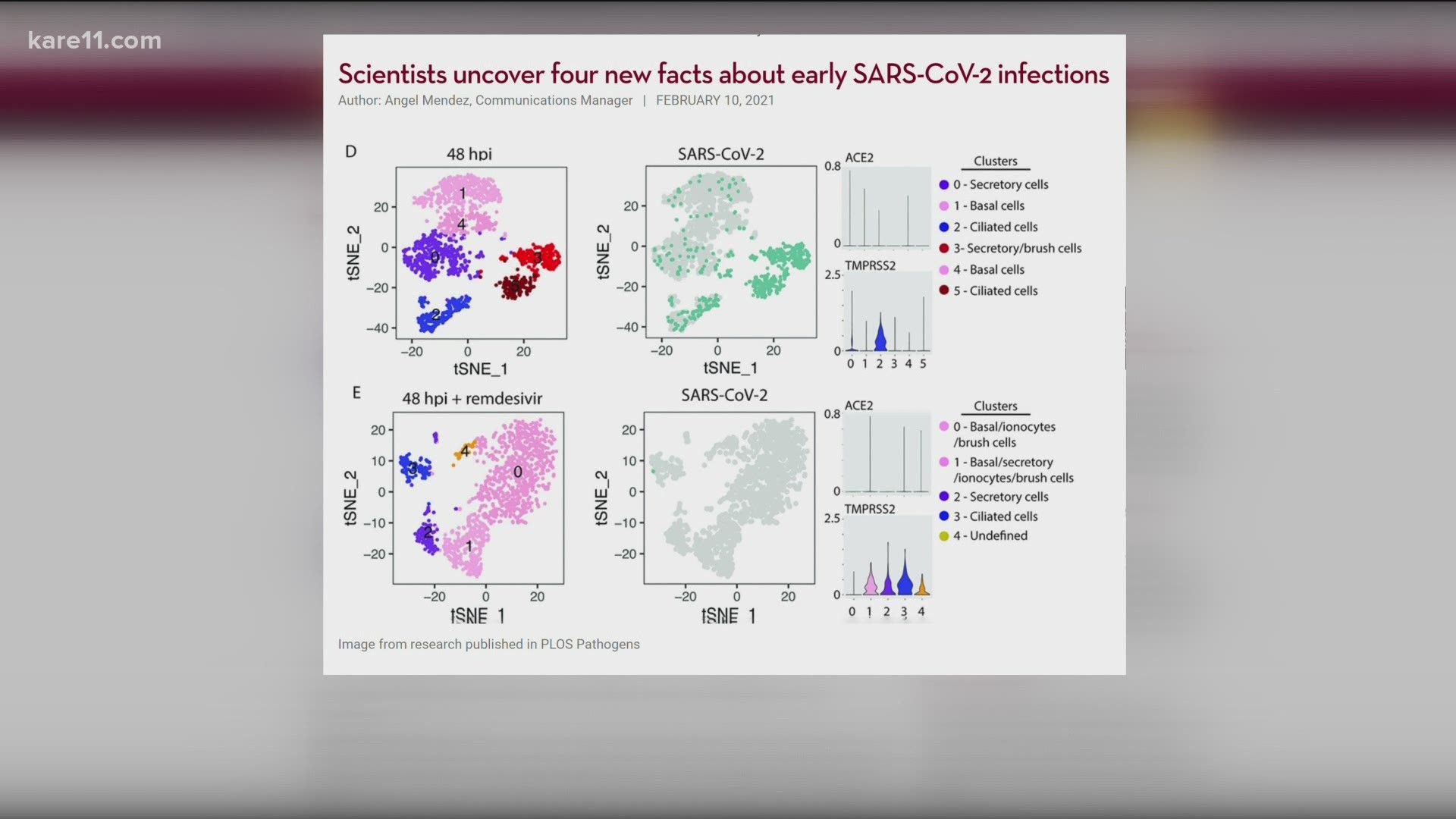MINNEAPOLIS — Doctors at the University of Minnesota are announcing major discoveries about COVID-19 and their research focuses on treating the virus.
Doctors agree that vaccines are the best line of defense in a pandemic.
Part of the new study shows how SARS-CoV-2 infects two main cells in our airway and quickly. The ciliated cells and goblet cells are responsible for moving things out of your air space and the other cells produce mucus.
"It also, unfortunately, tells us the course of the disease in SARS-CoV-2 starts early," said Dr. Ryan Langlois, an associate professor of microbiology and immunology with the University of Minnesota Medical School's Center for Immunology. "I think that's a critical finding here and that the earlier you can start interventions the better."
For example, remdesivir is an FDA approved drug used to care for COVID patients-- even former President Trump took it. While the World Health Organization said there wasn't enough evidence to show it did any good, Dr. Langlois' research shows it decreased the infected cells.
"The efficacy in people is not always as good and we strongly believe that's because remdesivir is frequently given late in the course of disease and so treating even earlier would be better," explained Dr. Langlois.
Remdesivir is only given to patients intravenously and Dr. Langlois suggested it could be more accessible as a pill in the future. But the doctor leading remdisivir clinical trials at the U of M says it's not that simple.
"Not all drugs translate well into the pill form," says Dr. Susan Kline, an infectious disease physician with the University of Minnesota Medical School and M Health Fairview. "So there are a number of different hurdles that have to be overcome."
Dr. Kline says remdesivir has shown it can help patients recover five days faster. The trials she's conducting now focus on combining remdesivir with anti-inflammatory drugs to speed that up even more.
Dr. Langlois says another pandemic is possible and their research around viruses will continue.
"I still think it's very important to understand how disease starts because there will be patients who unfortunately can't get vaccinated or the vaccine won't work as well and we're still going to need therapeutic intervention for these people."
Dr. Langlois said his team also discovered the SARS-CoV-2 virus is very good at evading our body's main weapon to fight off viral infections.
He said it's likely how the virus jumps from animal to human species and that honing in on those responses will help them be more prepared. Dr. Langlois started this particular research in April 2020 and says it will help scientists predict pandemics in the future.
"The hope would be maybe this drug, if we could continue to improve it, would be available for unfortunately the next SARS outbreak which is likely to occur at some point in all of our lifetimes."
To read more of Dr. Langlois' study, click here.

